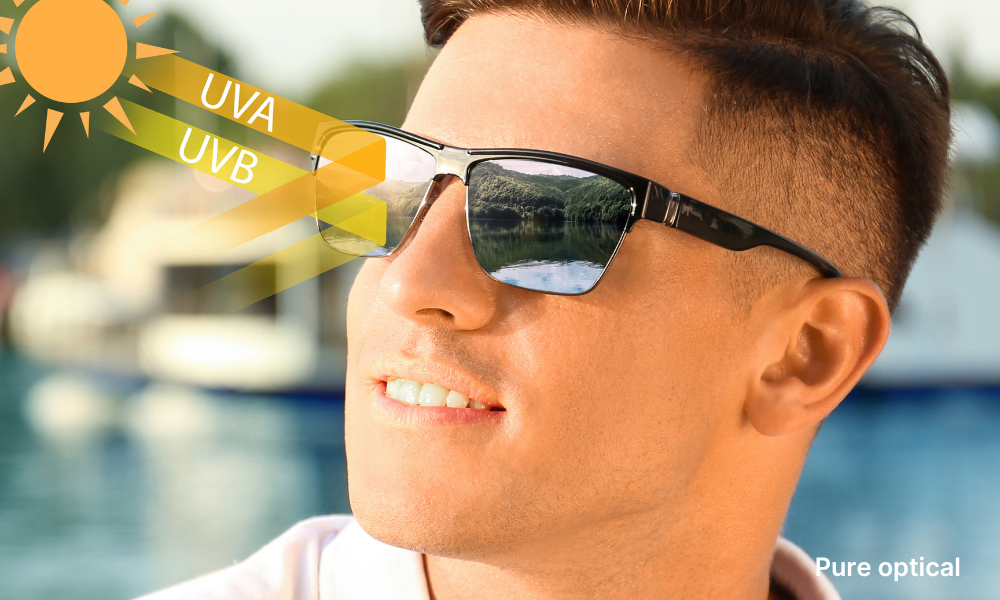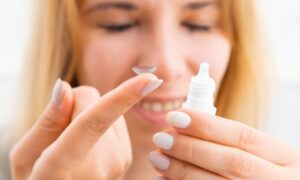Selecting the right eyewear for eye protection can prevent sun-related eye disorders such as:
- Cataracts: A condition where the lens of the eye becomes progressively opaque, resulting in blurred vision.
- Eye cancer: A rare form of cancer that can affect various parts of the eye. It includes melanoma of the eye, the most common type of eye cancer, and can involve structures like the retina, uvea, or eyelid.
- Eye growths: Abnormal tissue developments on or in the eye, which can be benign (like a pterygium or pinguecula) or malignant (like tumors). These growths can affect vision depending on their size and location.
- Photokeratitis: A painful eye condition caused by exposure to ultraviolet (UV) rays, typically from the sun or artificial sources like welding machines. It is essentially a sunburn of the cornea, the clear front part of the eye.
- Snow blindness: A specific form of photokeratitis caused by the reflection of UV light off snow and ice. It results in temporary vision loss and discomfort, mimicking a sunburned effect on the cornea of the eye.
In this extensive guide, we’ll detail how to choose the best sunglasses for vision that combine style with serious protective capabilities, focusing on UV protection, lens materials, frame styles, and more.
Understanding UV protection
When selecting sunglasses, a crucial aspect to consider is UV protection, which safeguards your eyes from the harmful effects of ultraviolet (UV) radiation. Exposure to UVA and UVB rays, the two types of UV radiation, can lead to severe eye conditions such as cataracts and macular degeneration.
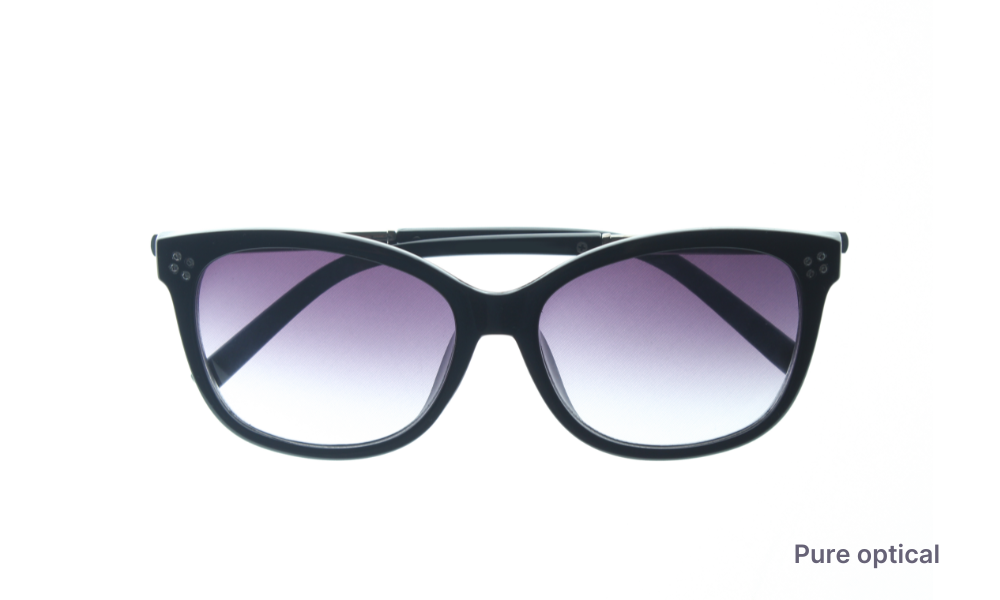
UVA rays are less intense but penetrate deeper into the eye, potentially causing long-term damage, while UVB rays are more intense and can cause immediate issues, such as photokeratitis, or sunburn of the eye.
To ensure maximum protection, opt for UV protection sunglasses labeled as “UV 400,” which block all light rays with wavelengths up to 400 nanometers, effectively shielding your eyes from both UVA and UVB rays.
This level of protection is essential to maintain healthy vision, especially during prolonged exposure to sunlight.
Lens material and quality
The lens material is crucial not only for the durability and clarity of your sunglasses but also for effective UV protection. Let’s explore the most common materials used for sunglass lenses:
Polycarbonate lenses
These are highly recommended due to their impact resistance, making them an ideal choice for sports and outdoor activities. Polycarbonate lenses are lightweight and provide inherent UV protection without needing additional coatings.
Glass lenses
Glass offers excellent clarity and scratch resistance but is heavier and prone to shattering, which could be hazardous during high-impact activities. However, for everyday wear, many people prefer glass for its resistance to scratching and superior optical quality.
Plastic lenses (acrylic)
Plastic lenses are an affordable alternative to polycarbonate and glass. They’re lighter than glass but more prone to scratches. Plastic lenses often require additional treatments to provide adequate UV protection.
Advanced coatings
Consider lenses with anti-reflective, anti-scratch, and hydrophobic coatings. These can enhance vision quality and durability. Anti-reflective coatings reduce glare and halo effects around lights, making them particularly useful for driving at night.
Frame design and coverage
The right frame design can enhance the effectiveness of your UV protection sunglasses, protecting your eyes from UV rays and glare.
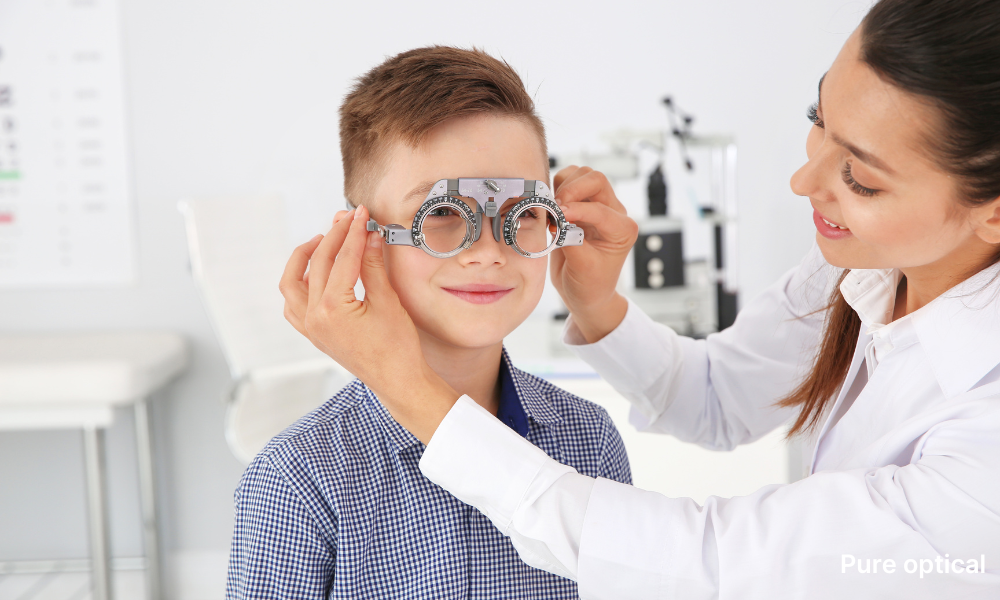
Wraparound frames
These provide the best coverage by preventing UV rays from entering from the sides. Wraparound sunglasses are particularly beneficial for activities in highly reflective environments, such as skiing or boating, where sunlight may bounce off snow or water.
Frame size and fit
Larger frames provide more coverage and protection. Ensure that your sunglasses fit well without pinching the bridge of your nose or squeezing the sides of your head. Poorly fitting sunglasses can let in UV rays and reduce effectiveness.
Polarization and tint levels
Polarization and lens tint further enhance eye protection and visual comfort.
Benefits of polarized lenses
Polarized lenses reduce glare from reflective surfaces like water, pavement, and glass, making them ideal for driving, fishing, and outdoor sports. They do not offer additional UV protection but make prolonged exposure to bright environments more comfortable.
Choosing lens tints
Choosing the right lens tint for your UV protection sunglasses significantly enhances visual comfort and effectiveness in various lighting conditions.
Gray tints are ideal for maintaining natural color perception, making them perfect for everyday wear and general activities.
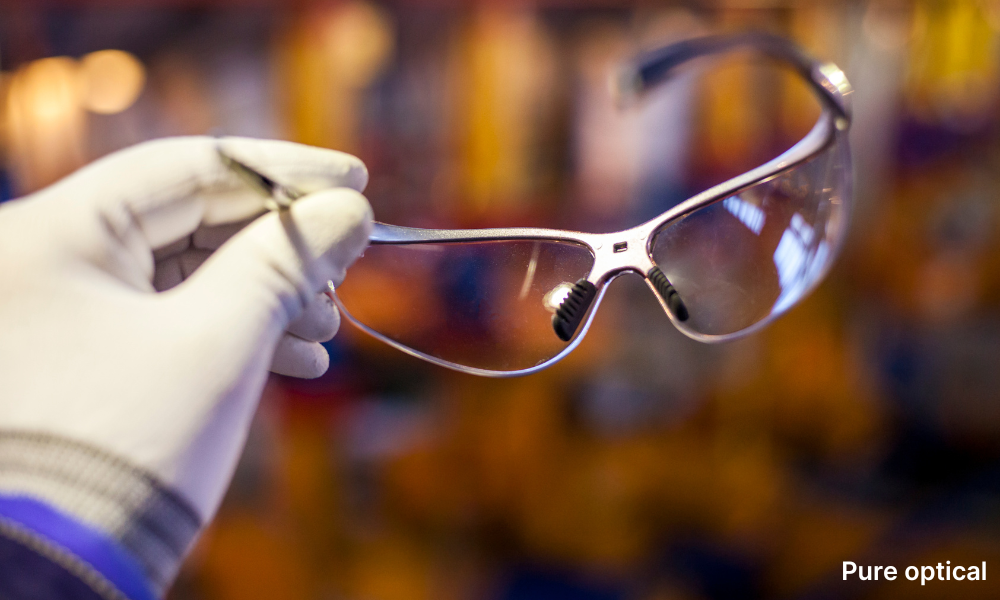
Brown and amber tints, on the other hand, increase contrast and depth perception, which is beneficial in variable light conditions and is especially useful for sports like golf where distance judgment is crucial.
Yellow or gold tints excel in low-light conditions, enhancing visibility for activities such as early morning cycling or hunting at dusk.
Each tint serves a specific purpose, improving not only visibility but also reducing eye strain under different environmental conditions. When selecting a tint, consider where and when you’ll be using your sunglasses most to ensure you choose a tint that enhances both safety and functionality.
Standards and certifications
It’s important to check for quality assurance standards when selecting your eyewear for eye protection. The best sunglasses for vision contain labels indicating compliance with ANSI Z80.3, ISO 12312-1, or similar standards. These certifications mean the sunglasses have undergone rigorous testing for optical quality and UV protection.
Considerations for specific needs
When selecting eyewear for eye protection, it’s important to consider specific needs based on individual lifestyle, activities, and health conditions.
For active individuals or athletes, choosing sunglasses that are designed to remain secure during vigorous activities, offer impact resistance, and provide additional UV protection is crucial.
Those who engage in sports such as cycling or skiing might benefit from specific frame designs that minimize wind resistance and protect from debris.
Individuals who require vision correction should look into prescription sunglasses that combine UV protection with their corrective prescription, ensuring clarity and protection simultaneously.
For children, whose eyes are more vulnerable to UV damage, durable, well-fitting sunglasses with complete UV protection are essential. Taking these personalized factors into account ensures that the sunglasses not only protect your eyes effectively but also enhance your overall outdoor experience.
Where to buy and what to avoid
To ensure you receive the best sunglasses for vision, purchase from reputable eyewear retailers, opticians, or directly from the manufacturer. Avoid buying sunglasses from street vendors, flea markets, or unknown online marketplaces, as these may be counterfeit and not provide adequate protection.
In summary, choosing the best eyewear for eye protection involves more than just picking a style. By prioritizing UV protection, selecting the right lens material and tint, ensuring a good fit, and verifying safety standards, you can protect your eyes effectively while enjoying sunny days. Remember, investing in a good pair of sunglasses is investing in your long-term vision health.

